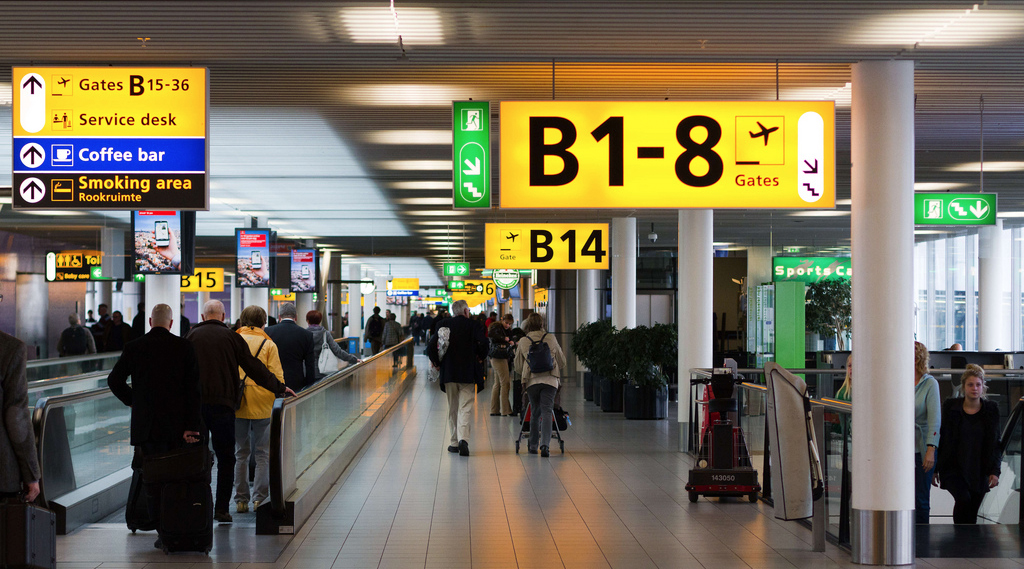Many airlines are advertising the fact that they are fumigating aircraft cabins after each journey to protect crew and passengers from Covid-19. But how effective is this method of disinfection?
The World Health Organisation on Saturday published a document advising against the routine application of disinfectants by spraying or ‘fogging’ in indoor spaces.
Airlines across the market have been reassuring passengers that they are sanitising their cabins between flights using a variety of measures, including WHO-recommended strategies like wiping down surfaces with disinfectant.
Aircraft cabins are inherently clean environments, and the International Air Transport Association (IATA) says that High Efficiency Particulate Air (HEPA) filters on modern planes clean cabin air to hospital operating theatre quality.
But it seems that dousing cabins with disinfectant is not the way forward for airlines.
Spraying as a primary disinfection strategy is “ineffective in removing contaminants outside of direct spray zones”, according to the WHO.
“Moreover, spraying disinfectants can result in risks to the eyes, respiratory or skin irritation and the resulting health effects,” the WHO said in a statement.
“Spraying or fogging of certain chemicals, such as formaldehyde, chlorinebased agents or quaternary ammonium compounds, is not recommended due to adverse health effects.”
It added that spraying environmental surfaces with disinfectants may not be effective in removing organic material and may miss surfaces shielded by objects, folded fabrics or surfaces with intricate designs.
“If disinfectants are to be applied, this should be done with a cloth or wipe that has been soaked in disinfectant.”
The aviation market is working hard to instil passenger confidence in air travel and has put forward a number of alternative solutions to on-board social distancing, which many fear could ruin some carriers.
Proposals to keep the middle seat unoccupied on planes to prevent the spread of Covid-19 during flights have been floated in recent weeks.
IATA has suggested that instead of social distancing, passengers and crew should wear masks while on-board while measures such as temperature screening, adjusted boarding processes and adjusted catering procedures could be introduced.
IATA estimates that keeping middle seats free on planes would incur unnecessary costs for airlines and cause the average air fare in the Middle East to rise by 43% to $259.
“Evidence suggests that the risk of transmission on board aircraft is low,” said Alexandre de Juniac, IATA’s CEO. “We must arrive at a solution that gives passengers the confidence to fly and keeps the cost of flying affordable. One without the other will have no lasting benefit.”
The WHO has also recommended against the spraying or fumigation of outdoor spaces, including streets, to kill the Covid-19 virus.
It said that disinfectant is inactivated by dirt and debris and it is “not feasible” to manually clean and remove all organic matter from outdoor spaces.
“Moreover, spraying porous surfaces, such as sidewalks and unpaved walkways, would be even less effective,” read the WHO’s document.
“Even in the absence of organic matter, chemical spraying is unlikely to adequately cover all surfaces for the duration of the required contact time needed to inactivate pathogens. Furthermore, streets and sidewalks are not considered to be reservoirs of infection for Covid-19. In addition, spraying disinfectants, even outdoors, can be harmful for human health.”
The WHO also said that spraying individuals with disinfectants in a tunnel or chamber is “not recommended under any circumstances”.
“This could be physically and psychologically harmful and would not reduce an infected person’s ability to spread the virus through droplets or contact.
“Moreover, spraying individuals with chlorine and other toxic chemicals could result in eye and skin irritation, bronchospasm due to inhalation, and gastrointestinal effects such as nausea and vomiting.”
About Guide2Uganda
Guide2Uganda (www.guide2uganda.ug) is the most comprehensive source of information about Uganda that exists on the web, with more content on Uganda and surrounding towns, attractions, museums and galleries than any other online guide that currently exists for Uganda as well as being a dynamic news and comprehensive events driven site with content being added daily.
According to WeFollow & Peer Index (whom both measure online influence) we are among the most influential online media organizations in Uganda. We were also awarded for ‘’Best Destination Website in Uganda’’ by Jumia Travel Uganda in the 2017-2018 Africa Travel Awards. If you are planning a visit to Uganda you can always reach us on; info@guide2uganda.ug



